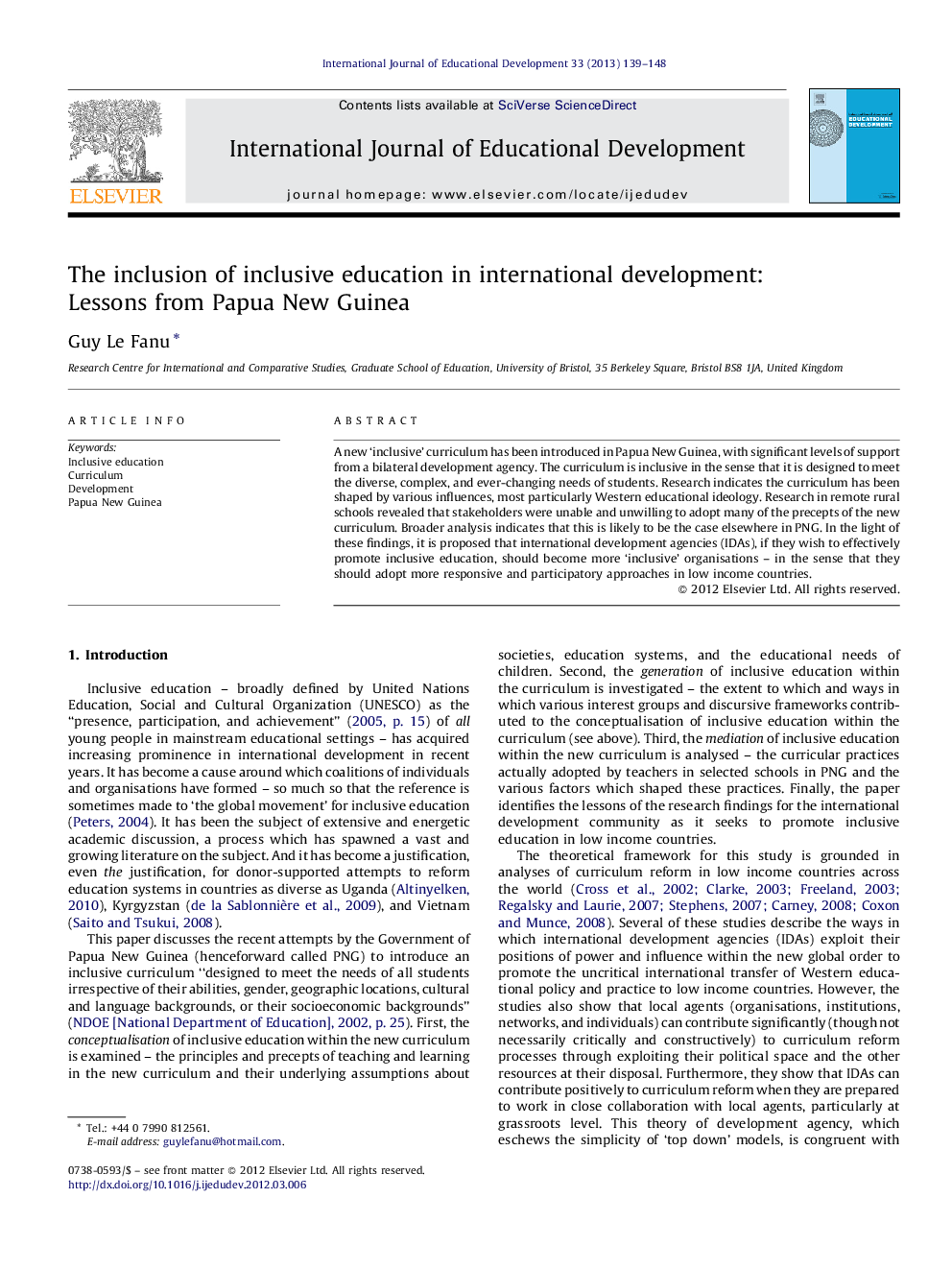| Article ID | Journal | Published Year | Pages | File Type |
|---|---|---|---|---|
| 356222 | International Journal of Educational Development | 2013 | 10 Pages |
A new ‘inclusive’ curriculum has been introduced in Papua New Guinea, with significant levels of support from a bilateral development agency. The curriculum is inclusive in the sense that it is designed to meet the diverse, complex, and ever-changing needs of students. Research indicates the curriculum has been shaped by various influences, most particularly Western educational ideology. Research in remote rural schools revealed that stakeholders were unable and unwilling to adopt many of the precepts of the new curriculum. Broader analysis indicates that this is likely to be the case elsewhere in PNG. In the light of these findings, it is proposed that international development agencies (IDAs), if they wish to effectively promote inclusive education, should become more ‘inclusive’ organisations – in the sense that they should adopt more responsive and participatory approaches in low income countries.
► A new ‘inclusive’ curriculum has been introduced in Papua New Guinea. ► This study examines its implementation in remote rural schools. ► Curricula are more likely to be implemented if they are context-sensitive. ► Schools also need to be provided with appropriate levels and types of support. ► International development agencies must acknowledge the above realities.
